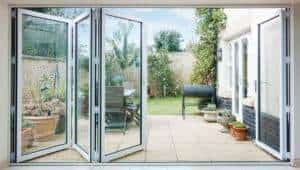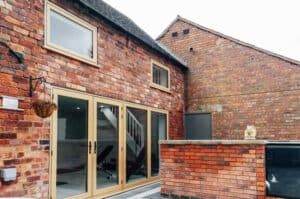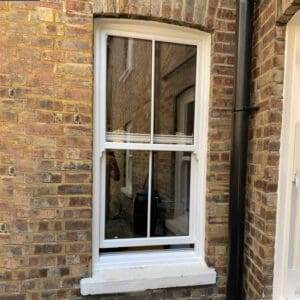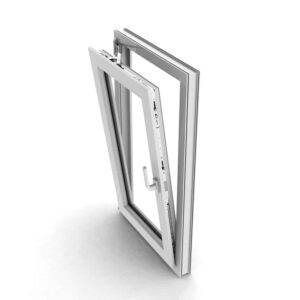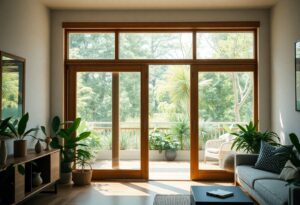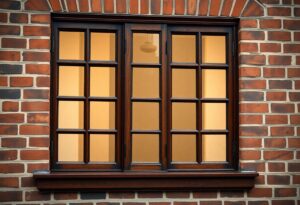You deserve a serene living environment, and soundproof windows can significantly enhance the peace and quiet in your home. These innovative installations are designed to block out unwanted noise from the outside, creating a tranquil space for you and your family. With various options available, you can choose the perfect solution to reduce disturbances from busy streets, noisy neighbours, or construction activities, ensuring that your home remains a refuge. Discover how soundproof windows can transform your living experience and promote wellness and relaxation.
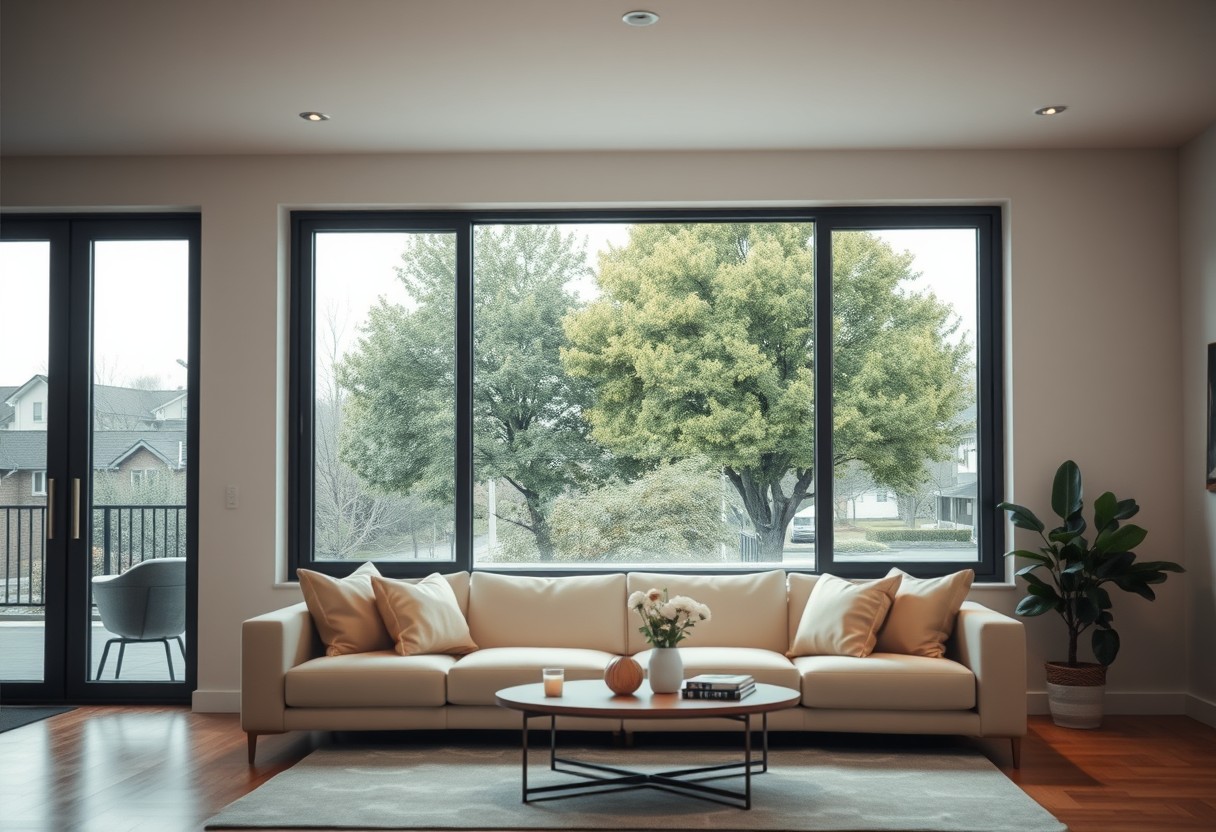
Understanding Soundproofing
Before exploring into soundproofing solutions, it’s necessary to understand the fundamental principles that govern how sound travels. Sound exists as waves, propagating through different mediums at varying speeds and intensities, typically measured in decibels. Various factors affect this, including the types of noise, and understanding sound insulation ratings can guide you in making informed choices for your home. (Knowing how these factors interact is key to optimising your soundproofing.)
The Science of Sound
One necessary aspect of acoustics is how sound travels. Sound waves can be classified into two main categories: airborne noise, which travels through the air, such as shouting or traffic, and structure-borne noise, which travels through solid materials, like vibrations from machinery. These waves interact with surfaces, leading to different levels of sound insulation, rated in decibels. When considering soundproof solutions, it’s important to evaluate your specific requirements. (Deciding between various soundproofing materials can significantly affect your home’s tranquillity.)
- Airborne noise (e.g., voices, music)
- Structure-borne noise (e.g., vibrations from machinery)
- Sound waves (e.g., how they propagate)
- Decibels (volume measurement)
- Sound insulation ratings (effectiveness of materials)
Assume that understanding these basics will lead you towards effective soundproofing solutions.
| Type of Noise | Description |
|---|---|
| Traffic | Continuous noise from vehicles passing |
| Construction | Noisy machinery and heavy-duty work |
| Nature Sounds | Birds, wind, and rain which can create a soothing atmosphere |
| Appliances | Sound generated by household machinery |
| Voices | Conversation sounds that can echo through spaces |
Types of Noise
At home, you may encounter various types of noise that can disrupt your peace. External sources include traffic, construction, and sounds from nature, which can be unwelcome intrusions. On the other hand, internal noise sources might come from appliances, voices, or echoes within the space. Each of these influences your daily routine and overall well-being. (Understanding these differences will aid in implementing effective soundproofing methods.)
- External noise sources (e.g., traffic, construction)
- Internal noise sources (e.g., appliances, voices)
- Impact on well-being (e.g., stress levels)
- Daily life disturbances (e.g., concentration difficulties)
- Soundproofing considerations (e.g., proper material selection)
Assume that identifying these noise sources will empower you to make better decisions regarding your soundproofing approach.
| External Noise | Impact |
|---|---|
| Traffic | Constant disturbance, impacting peace |
| Construction | Periodic loud noises, causing interruptions |
| Nature Sounds | Can enhance tranquillity or distract |
| Appliances | Regular sounds affecting focus |
| Voices | Can disturb privacy and comfort |
Benefits of Soundproof Windows
Some of the most notable benefits of soundproof windows include a significant reduction in noise pollution, which can greatly enhance your living experience. By minimising external disturbances, you can enjoy a more peaceful environment, ultimately leading to improved sleep quality, reduced stress levels, and heightened overall well-being. These windows not only promote tranquillity but also create a more serene atmosphere for your daily activities.
Improved Concentration and Productivity
Behind every successful work or study session is a conducive environment free from distractions. By reducing noise levels, soundproof windows allow you to focus better, leading to increased efficiency and productivity. The calming effect of a quieter space significantly aids in lowering stress levels, which is necessary for your mental health. Ultimately, a peaceful setting enables you to concentrate deeply on your tasks and enhances your overall performance.
Enhanced Comfort and Property Value
On a practical level, soundproof windows offer you enhanced comfort in your living spaces by blocking out disruptive noises, creating a serene home environment. Furthermore, as noise pollution becomes a growing concern for many homebuyers, the installation of soundproof windows can potentially increase your property’s value during resale. It’s an investment that pays off not just in comfort but also in marketability.
Enhanced comfort through soundproof windows creates a sanctuary within your home, allowing you to relax without the interruptions of the outside world. By providing an immediate barrier to unwanted noise, you not only cultivate a peaceful atmosphere but also make a smart choice for your future. In a market increasingly aware of noise pollution, your property’s value can rise with the addition of premium features like soundproof windows, making it a wise investment for both current enjoyment and long-term gain.
Features of Soundproof Windows
You will discover that soundproof windows offer a variety of features designed to minimise external noise, enhancing your home’s tranquility. These features can include advanced glass types, effective frame technologies, and superior sealing methods that all work together to prevent sound infiltration. Below, you will find insightful details on these specific attributes to guide your purchasing decisions.
| Glass Type | Benefit |
| Laminated Glass | Reduces noise by absorbing sound vibrations. |
| Double-Glazed | Creates an air gap, enhancing insulation and soundproofing. |
| Acoustic Glass | Specially designed for optimal noise control. |
| Glass Thickness | Thicker glass provides greater sound reduction. |
Glass Types and Thickness
You will find that the choice of glass types and their thickness plays a significant role in soundproofing effectiveness. Options such as laminated and double-glazed glass provide excellent sound reduction, with the added possibility of selecting acoustic glass for your specific noise concerns. The combination of varying thicknesses can strategically reduce unwanted noise by absorbing sound waves more efficiently. After reviewing your noise exposure, choosing the right glass can greatly enhance your living environment.
Frame and Seal Technologies
To achieve optimal sound insulation, the importance of window frames, sealing techniques, and installation methods cannot be overstated. When identifying soundproof windows, you should look for frames made from materials that hinder sound transmission and high-quality seals that prevent gaps and leaks. (Choosing a professional installer can make a significant difference in performance.)
Consequently, your choice in frame and seal technologies can affect both soundproofing and energy efficiency. Ensure that the frames are robust and finely sealed to prevent noise leakage. Pay attention to the installation process, as improper fitting can lead to diminished sound insulation and other issues. (Investing in a reliable product now will save you issues in the long run.)
Installation Process
Now that you understand the benefits, it’s important to consider the installation process for soundproof windows. Proper installation is key to achieving maximum sound reduction and overall effectiveness. You may want to consult Soundproof windows – peace and quiet in your home – Fintecnic for more detailed insights. Whether you choose to hire a professional or take on a DIY approach, each option has its unique requirements and outcomes.
Professional vs. DIY
Before deciding on how to install your soundproof windows, weigh the pros and cons of hiring professionals against a DIY installation. Engaging professionals ensures precise fitting and maximises the sound reduction capabilities of the windows, while a DIY approach can save costs but may lead to mishaps if you’re not experienced. (Ultimately, the decision depends on your skills and budget.)
Maintenance and Care
For maintaining soundproof windows, regular upkeep is vital to ensure they perform well over time. Keep the frames clean and free from dirt, while also inspecting seals for any signs of wear and tear. Address any issues promptly to enhance longevity.
This routine maintenance is important for optimal performance. Regularly check that the seals are intact and functional, as a slight damage can lead to sound leakage. Additionally, use a gentle cleaner for the glass to prevent scratches, and avoid abrasive materials that might harm the frames. Your diligence in maintenance will ultimately contribute to a quieter environment in your home.
Cost Considerations
Your investment in soundproof windows involves several factors, with typical costs reflecting materials, labour, and potential financing options. Expect to pay anywhere from £300 to £1,000 per window, depending on the type and installation complexity. Understanding the benefits gained from noise reduction and energy efficiency is key (you’ll find that quality soundproofing can enhance your home’s value). Prioritising your budget will help you make an informed decision about improving your living environment.
Budgeting for Soundproof Windows
For effective budgeting, consider the costs associated with soundproof window installation, which can range dramatically based on various factors. Materials such as double or triple glazing, acoustic seals, and professional installation services will influence total expenses. Many companies also offer financing options to help spread the costs. Although the initial investment may seem high, analysing the long-term benefits of quieter living spaces makes it worthwhile (finding the right balance in your budget is important for a successful upgrade).
Long-Term Savings
With soundproof windows, you may see significant long-term savings on energy bills and property maintenance. Improved insulation not only keeps your home quiet but also enhances energy efficiency, ultimately resulting in lower heating and cooling costs. By offsetting the initial investment over time, these windows can lead to substantial savings (investing in soundproof windows is both a lifestyle and financial decision).
The enhanced energy efficiency provided by soundproof windows assists in reducing your reliance on heating and cooling systems, resulting in lower utility bills. Additionally, you may experience less wear and tear on your home’s infrastructure, leading to decreased maintenance costs. Investing in soundproof windows could prove to be a wise choice for your home’s resilience and comfort (make sure to assess the long-term financial impact when choosing your windows).
Final Words
The choice to install soundproof windows can transform your living space, creating a sanctuary of peace and quiet amidst the chaos of everyday life. By investing in quality soundproofing, you are enhancing your comfort and ensuring that external noise does not disturb your relaxation or productivity. To gain further insights into this effective solution, consider exploring The Complete Guide to Soundproof Windows, which offers detailed information on how to achieve the best results for your home.
FAQ
Q: What are soundproof windows?
A: Soundproof windows are specially designed windows that minimise the transmission of sound from the outside environment into your home. They often feature multiple panes of glass, specialised frame construction, and sound-absorbing materials to effectively reduce noise pollution.
Q: How do soundproof windows work?
A: These windows work by using a combination of thickness, space between panes, and materials that effectively block sound waves. The design typically includes two or more layers of glass with insulating gas in between, which dampens sound vibrations and prevents noise from entering your living space.
Q: Are soundproof windows effective against all types of noise?
A: Soundproof windows are particularly effective against airborne noise, such as traffic, construction, and voices. However, they may not completely eliminate all noises, especially low-frequency sounds like thumping or vibrations. Their primary function is to significantly reduce these disturbances.
Q: How much do soundproof windows cost?
A: The cost of soundproof windows can vary widely based on materials, size, and installation. On average, homeowners can expect to spend anywhere from £300 to £1,000 per window. It’s advisable to obtain quotes from multiple suppliers to find a suitable option within your budget.
Q: Can I install soundproof windows myself?
A: While some individuals may opt for DIY installation, it is generally recommended to hire professionals. Proper installation is key to maximising their sound-reducing capabilities. Mistakes during installation can lead to gaps that allow noise to seep in, negating the benefits of the soundproof windows.
Q: Will soundproof windows also improve energy efficiency?
A: Yes, soundproof windows can enhance your home’s energy efficiency. The same features that help block sound, such as multiple panes and insulated frames, also provide better thermal insulation. This can lead to reduced heating and cooling costs over time.
Q: How do I maintain soundproof windows?
A: Maintaining soundproof windows mostly involves regular cleaning and inspection. Ensure that the seals and frames are in good condition to prevent air and sound leaks. Use appropriate cleaning solutions for the glass surfaces and consider professional servicing for any issues with the window’s insulation properties.

